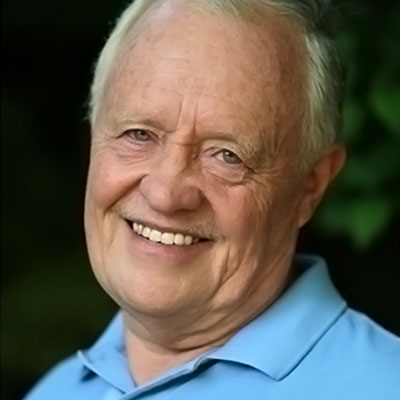What is the difference between conventional psychotherapy and hypnotherapy?
In conventional psychotherapy the therapist only has access to the conscious reasoning mind, whereas the hypnotherapist has access to the conscious as well as the subconscious mind.
The conscious mind never has the problem. It only experiences the symptoms of the real underlying problem which is situated in the subconscious mind, e.g. an obese person consciously wants to be slim. It could be that the person is experiencing anxiety and is since childhood subconsciously programmed to eat whenever anxious. Thus, in order to lose weight, the original cause for the anxiety (which might be fear of rejection) must be removed from the subconscious and it must be re-programmed with new coping skills.
Every individual consciously wants to be happy, healthy and successful. What stands in their way to achieve this is always a faulty thought pattern in the subconscious mind. Psychotherapy can never successfully treat symptoms (e.g. techniques to cope with stress) unless the underlying cause has been dealt with.
The human mind can be compared to a computer. The subconscious mind is like the hard drive which contains the program — a thought pattern. This program determines what appears on the screen. The conscious mind can be compared to the screen and the keyboard. If you press the right keys and a fault keeps appearing on the screen, you know the programme is at fault and it will have to be repaired.
Through hypnotherapy this programme can be accessed and re-programmed, thus deleting underlying faulty thought patterns and replacing it with positive suggestions, which has often resulted in lasting relief for the client.
Why does hypnotherapy work so well?
It works directly with the subconscious mind to unlock the key to our problems and permanently change patterns of thought and behaviour. Our psychological and emotional problems begin in the subconscious; therefore it is logical that this is the best place to resolve them. Hypnotherapy is unique in having, through the natural medium of trance, the opportunity to address the subconscious mind, removing emotional blockages and thus freeing us of unwanted emotions, thoughts and behaviours that are negatively impacting on our lives.
Although hypnotherapy is powerful, it is extremely safe and the client is always in control. You will only make the changes you want to make.
Clinical hypnotherapy is a scientifically researched discipline which is growing in popularity because it is a safe proven method of helping people to overcome problems permanently.
Can anybody be hypnotised?
Anyone with an average or higher intelligence can be hypnotised if he or she is willing to comply with the suggestions.
What qualities are necessary to be hypnotised?
The ability to concentrate, visualise and relax are important. The hypnotic ability can be improved with practice.
Is it difficult to awaken a hypnotised person?
No. You can wake a person simply by saying “Wake up!”
Will a hypnotised person remember afterwards what has occurred during hypnosis?
In the lighter stages of hypnosis a person usually remembers everything that occurred. At times, in the deeper states, a person may have only partial remembrance, but if the suggestion is given that he/she will remember everything, they will.
Is it possible to induce criminal acts in hypnosis?
No. A person under hypnosis maintains his/her moral code at all times and will resist suggestions that are repugnant to him/her.
What is the difference between stage hypnosis and therapeutic hypnosis?
Stage hypnosis is designed to create the illusion that the hypnotist has complete control over the participants. When the stage hypnotist asks for volunteers to take part in his show, several people then normally go onto stage. The hypnotist does a short induction, watching the response of the participants closely. He then sends back most, leaving only a few people onstage. This creates the faulty impression that those sent back are not hypnotisable. The truth is that being hypnotised is an ability we all have, just like the ability to sing, run, etc. With every ability there is a small percentage of the population who has a talent in that ability, e.g. who become singers or athletes. It is the same with the ability to be hypnotised. A small percentage of the population has a hypnotic talent, i.e. the ability to enter into a hypnotic trance very quickly and very deeply. These are the people chosen by the stage hypnotist for his show. The volunteers comply with the suggestions of the hypnotist because they want to, not because they are being controlled. These are typically people who enjoy being the centre of attention. Stage hypnosis is used entirely for entertainment.
Hypnosis used for therapeutic reasons is called hypnotherapy. A hypnotherapist is a qualified psychologist who is also trained to use certain therapeutic methods while the patient is in a hypnotic trance. In South Africa the training of hypnotherapists is done by the South African Society for Clinical Hypnosis (SASCH). All members of SASCH are professional and include psychologists, psychiatrists, medical doctors and dentists. Hypnotherapy can bring about lasting relief from symptoms through adjustments on the subconscious level.
Is hypnotherapy in conflict with Christian values?
There are a number of fallacies about hypnosis caused by the magical sinister image created by the stage hypnotist about the hypnotic state. The main concern is the impression that the hypnotised person loses control and might be open to be possessed by evil spirits.
If it is considered that the hypnotic trance is just a state of intense concentration which we spontaneously enter into several times daily when concentrating on various tasks, we would then be subjected to being possessed by evil spirits while living our daily lives.
In the criticism against hypnosis it is in reality about the values, the competency and the trustworthiness of the hypnotherapist. It is in the best interest of the patient to be at ease with the therapist. This often comes from being referred by somebody who experienced the competency of and trusts the therapist; or by making sure the therapist you choose is registered, qualified and experienced.
Jeanette Dreyer is a SASCH registered Clinical Hypnotherapist at the Eureka Centre. Contact us for an appointment today for your own personal Eureka Experience.










































